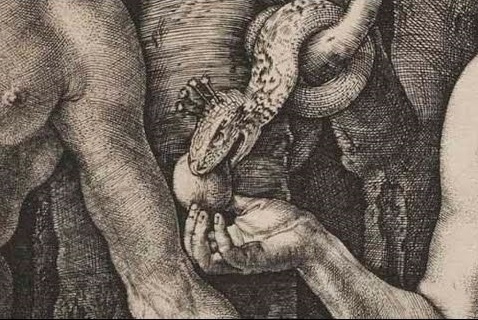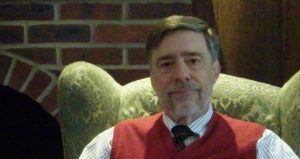
Recently, I was reading C. S. Lewis’s book English Literature in the Sixteenth Century. In his introduction, Lewis seeks to inform the reader of the 16th century worldview in order to rightly understand the authors of that time. One needs to understand, per Lewis, that medieval concepts were still very much alive. One of these concepts was that of Man’s place in the universal hierarchy. While many saw this place as limited by the borders of two primary aspects of his being – his rationality and his attributes shared with the animal kingdom; his animality – there were apparently some in medieval times who thought that he could transcend these borders.
One such person was the Florentine Pico della Mirandola (1463-94). Lewis says, “Pico suggests that Man has no specific nature at all but creates his own nature by his acts” (pp. 12-13). Quoting a comment about the nature of mankind from his De Dignitate, we read, “We haue made thee neither a thing celestial or a thing terrestrial, neither mortal nor immortal, so that being thine owne fashioner and artificer of thyselfe, thou maist make thyselfe after what likenes thou dost most affecte.”
Off the cuff, Lewis says that Pico “oddly anticipates Sarte” (p. 12). Indeed, Sarte is known to have said, “You can always make something out of what you’ve been made into” (Situations 9:101). I was myself reminded of the common opinion of our time that we can decide who and what we are, as a human being, according to the whims of our own wills. There is no received, permanent constitution of any particular aspect of our nature. This idea is glaringly evident in the current debate about gender – where such debate is allowed!
We thus observe that a kind of self-determination of what will be the “real” or “authentic” self, such as we face today, is no new idea. I can hear King Solomon commenting, “Well, what did you expect? There is no new thing under the sun” (Ecclesiastes 1:9). Indeed. Yet how far back does this idea go?
It goes back to the beginning, does it not? What was the temptation Satan put before Eve? Genesis 3:4-5: And the serpent said unto the woman, Ye shall not surely die: For God doth know that in the day ye eat thereof, then your eyes shall be opened, and ye shall be as gods, knowing good and evil. In other words, you can have the power of your own divinity to define your own reality. Sadly, both Adam and Eve discovered this to be a lie when they were brought face-to-face with the Reality of the one, true God. In light of their transgression, he defined their reality for them: they became fallen creatures that die. Thankfully, in his mercy, that is not all He did.
When God created humans, he said it was “very good.” He was right, of course. If we want what is good for ourselves, then, we need to appreciate what he has created and be thankful for it. The more we can comprehend the innate goodness of how God has made us, the more open we can be to experience the love that is behind that goodness and be at peace.
Reference: C. S. Lewis, English Literature in the Sixteenth Century, Excluding Drama. (Oxford, Clarendon Press, 1954).
————————–
Please note that the content and viewpoints of Rev. Beckmann are his own and are not necessarily those of the C.S. Lewis Foundation. We have not edited his writing in any substantial way and have permission from him to post his content.
————————–

The Rev. David Beckmann has for many years been involved in both the Church and education. He helped to start a Christian school in South Carolina, tutored homeschoolers, and has been adjunct faculty for both Covenant College and the University of Tennessee, Chattanooga. He founded the C.S. Lewis Society of Chattanooga in 2005. He has spoken extensively on C.S Lewis, and was the Director of the C.S Lewis Study Centre at The Kilns from 2014-2015. He is currently a Regional Representative for the C.S. Lewis Foundation in Chattanooga.
This article was highly informative. I thanks God there are still men like you in the world. I would love to have more homeschooling information for my grandchildren. I love the teachings of C.S. Lewis too.